Oscar De La Hoya recently made headlines with a provocative remark about Manny Pacquiao, suggesting that Pacquiao was fortunate to have faced Floyd Mayweather Jr. later in the latter’s career rather than during his prime. De La Hoya’s comments have sparked a fresh wave of debate among boxing fans and analysts.
In a candid interview, De La Hoya, a former world champion and boxing promoter, took aim at Pacquiao’s place in boxing history. “He’s lucky to be fighting the older version of Floyd,” De La Hoya stated. “Because if he fought Floyd when he was in his prime, Floyd would have knocked him out just like Marquez did.”
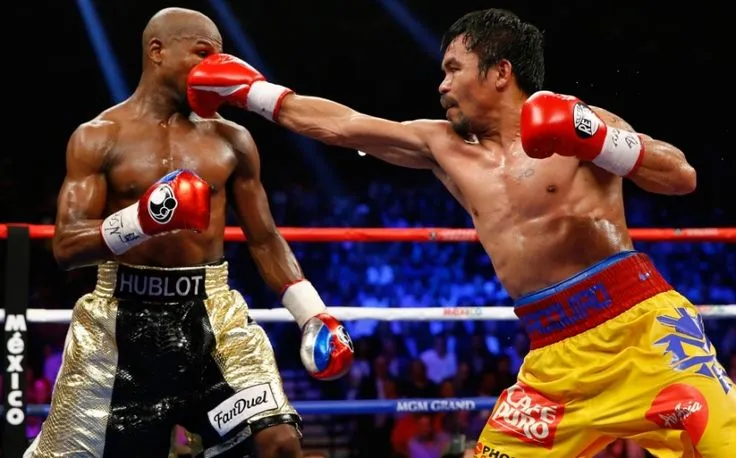
De La Hoya’s comments reference Pacquiao’s high-profile fight with Mayweather that took place in May 2015. At the time, Mayweather was undefeated and widely considered one of the greatest defensive boxers in history. Pacquiao, on the other hand, was coming off an impressive run but was not at the peak of his career. The bout ended with Mayweather securing a unanimous decision victory, a result that many felt was a testament to his superior technique and strategy.
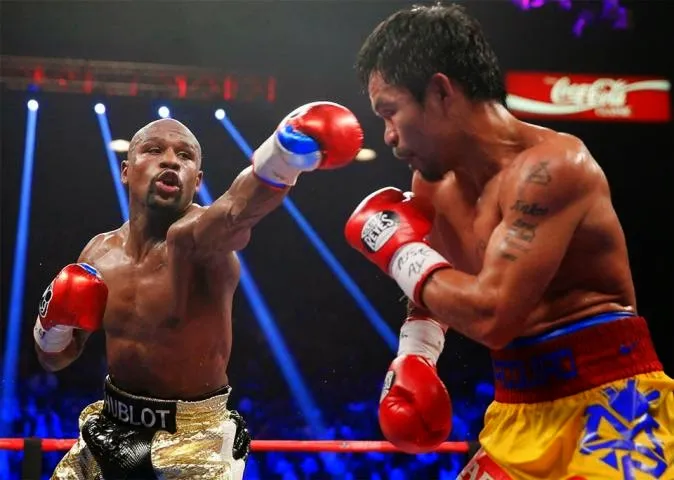
De La Hoya’s comparison to Juan Manuel Márquez’s knockout of Pacquiao in 2012 adds another layer to his criticism. Márquez’s knockout of Pacquiao in their fourth fight was a defining moment for both fighters, showcasing the Mexican’s precise counterpunching and highlighting vulnerabilities in Pacquiao’s defense.
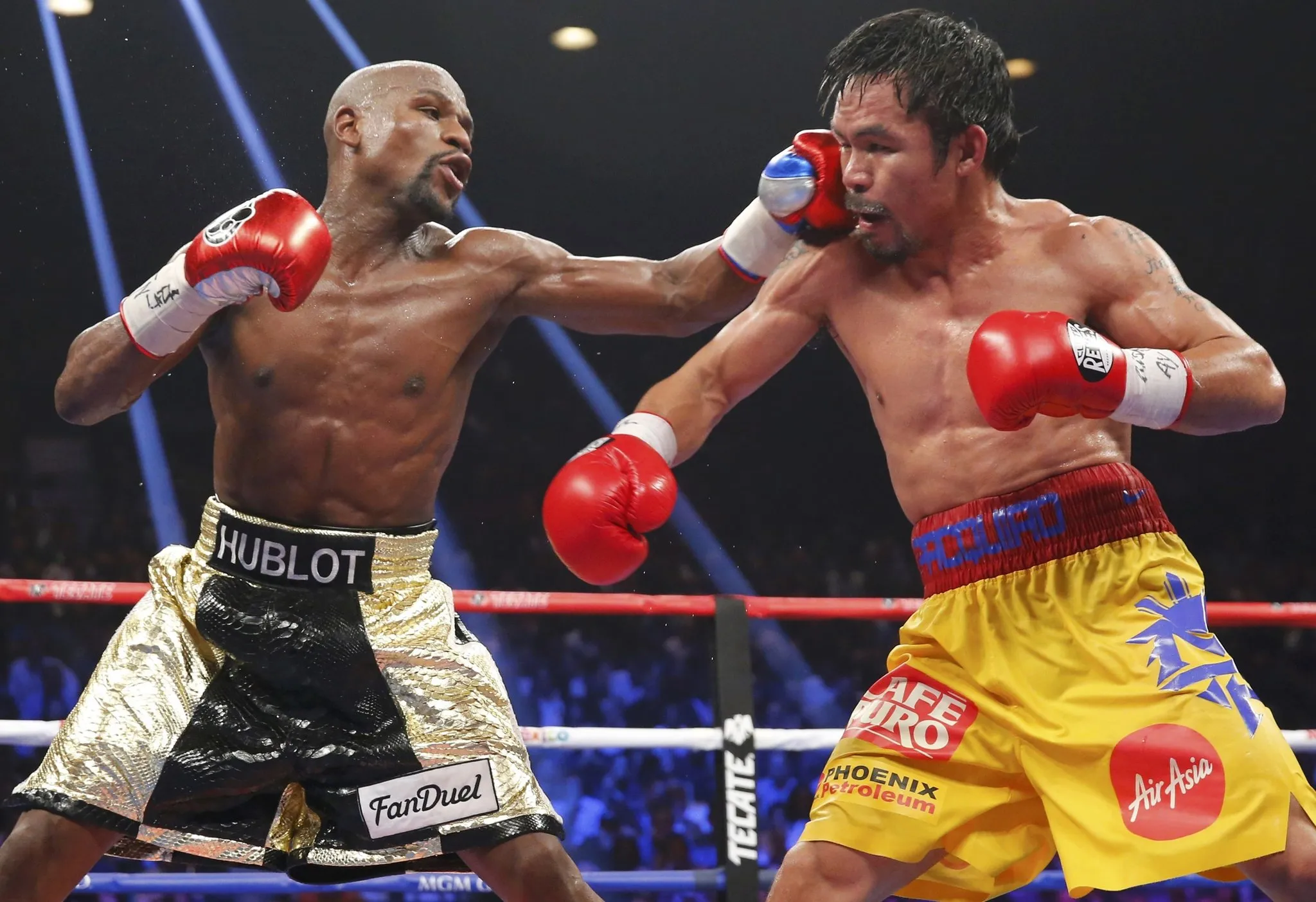
By implying that Mayweather could have delivered a similar fate had they fought during his prime, De La Hoya is positioning the fight as a missed opportunity for Pacquiao to face Mayweather at the height of his powers. This perspective, while speculative, plays into broader debates about the timing and circumstances of major fights in boxing history.
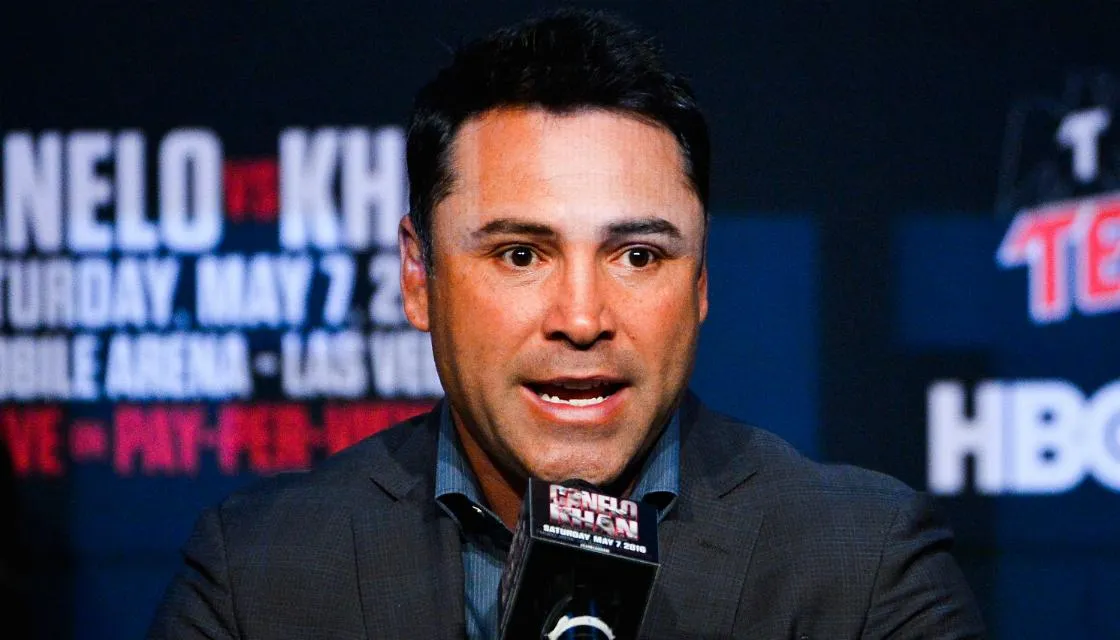
De La Hoya’s remarks also reflect ongoing discussions about the timing of significant matchups and how they impact a fighter’s legacy. While many acknowledge that Mayweather was an exceptional fighter, others argue that his victory over Pacquiao was achieved against a version of Pacquiao that was not as dominant as he once was.
The comment highlights the competitive nature of boxing discourse and the ways in which past fights are continually re-evaluated. As a prominent figure in the sport with extensive experience both in and out of the ring, De La Hoya’s opinion carries weight, fueling further conversation about the enduring legacies of these boxing icons.
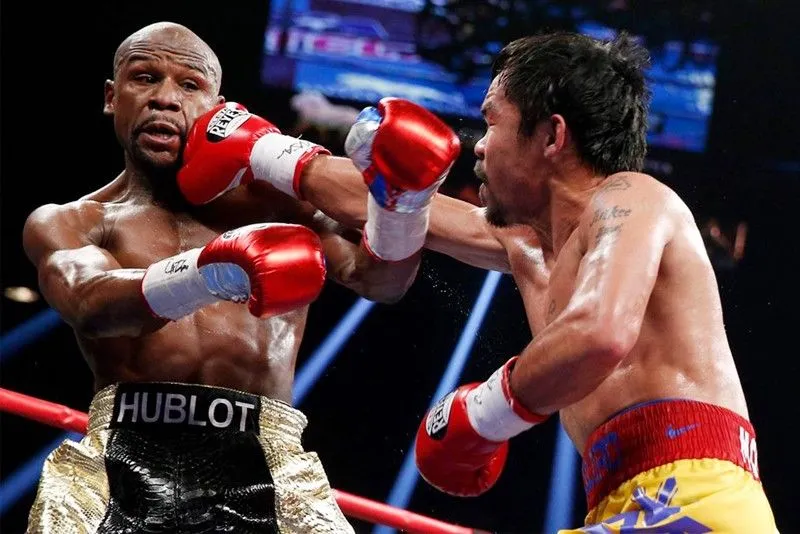
In conclusion, Oscar De La Hoya’s assertion that Manny Pacquiao faced a less formidable version of Floyd Mayweather than he might have in the past continues to stir debate. It reflects the ongoing analysis of past matchups and the impact of timing and fighter conditions on boxing history.


 SINO ANG AMA? SI DANIEL PADILLA O ALDEN RICHARDS!?
SINO ANG AMA? SI DANIEL PADILLA O ALDEN RICHARDS!?


 Ano nga ba ang ibig sabihin nito?
Ano nga ba ang ibig sabihin nito?